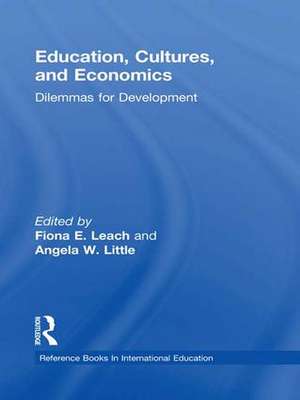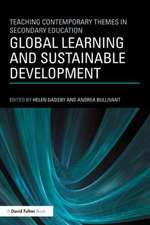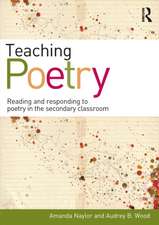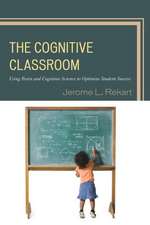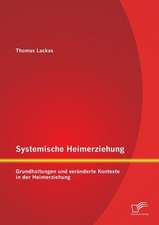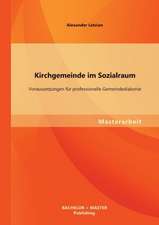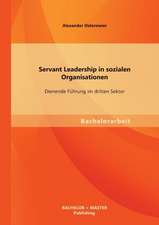Education, Cultures, and Economics: Dilemmas for Development: Reference Books In International Education
Autor Angela W. Little, Fiona E. Leachen Limba Engleză Paperback – 29 feb 2016
| Toate formatele și edițiile | Preț | Express |
|---|---|---|
| Paperback (1) | 442.50 lei 6-8 săpt. | |
| Taylor & Francis – 29 feb 2016 | 442.50 lei 6-8 săpt. | |
| Hardback (1) | 1017.21 lei 6-8 săpt. | |
| Taylor & Francis – oct 1999 | 1017.21 lei 6-8 săpt. |
Din seria Reference Books In International Education
- 18%
 Preț: 1060.43 lei
Preț: 1060.43 lei -
 Preț: 354.94 lei
Preț: 354.94 lei - 15%
 Preț: 209.80 lei
Preț: 209.80 lei -
 Preț: 309.69 lei
Preț: 309.69 lei -
 Preț: 404.24 lei
Preț: 404.24 lei - 18%
 Preț: 1277.66 lei
Preț: 1277.66 lei -
 Preț: 442.50 lei
Preț: 442.50 lei -
 Preț: 490.72 lei
Preț: 490.72 lei -
 Preț: 309.69 lei
Preț: 309.69 lei -
 Preț: 442.50 lei
Preț: 442.50 lei -
 Preț: 442.50 lei
Preț: 442.50 lei -
 Preț: 198.19 lei
Preț: 198.19 lei - 18%
 Preț: 929.88 lei
Preț: 929.88 lei -
 Preț: 482.35 lei
Preț: 482.35 lei -
 Preț: 442.50 lei
Preț: 442.50 lei - 16%
 Preț: 234.90 lei
Preț: 234.90 lei -
 Preț: 429.27 lei
Preț: 429.27 lei -
 Preț: 442.50 lei
Preț: 442.50 lei -
 Preț: 369.73 lei
Preț: 369.73 lei - 18%
 Preț: 1013.04 lei
Preț: 1013.04 lei - 13%
 Preț: 318.40 lei
Preț: 318.40 lei - 18%
 Preț: 1002.60 lei
Preț: 1002.60 lei - 17%
 Preț: 142.32 lei
Preț: 142.32 lei - 18%
 Preț: 1065.40 lei
Preț: 1065.40 lei -
 Preț: 422.59 lei
Preț: 422.59 lei -
 Preț: 211.47 lei
Preț: 211.47 lei -
 Preț: 309.69 lei
Preț: 309.69 lei -
 Preț: 422.59 lei
Preț: 422.59 lei -
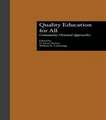 Preț: 442.50 lei
Preț: 442.50 lei - 15%
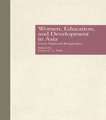 Preț: 699.01 lei
Preț: 699.01 lei -
 Preț: 421.61 lei
Preț: 421.61 lei - 25%
 Preț: 766.66 lei
Preț: 766.66 lei -
 Preț: 483.34 lei
Preț: 483.34 lei - 18%
 Preț: 1224.24 lei
Preț: 1224.24 lei
Preț: 442.50 lei
Nou
Puncte Express: 664
Preț estimativ în valută:
84.68€ • 88.30$ • 70.38£
84.68€ • 88.30$ • 70.38£
Carte tipărită la comandă
Livrare economică 20 martie-03 aprilie
Preluare comenzi: 021 569.72.76
Specificații
ISBN-13: 9781138968455
ISBN-10: 1138968455
Pagini: 424
Dimensiuni: 138 x 216 x 22 mm
Greutate: 0.45 kg
Ediția:1
Editura: Taylor & Francis
Colecția Routledge
Seria Reference Books In International Education
Locul publicării:Oxford, United Kingdom
ISBN-10: 1138968455
Pagini: 424
Dimensiuni: 138 x 216 x 22 mm
Greutate: 0.45 kg
Ediția:1
Editura: Taylor & Francis
Colecția Routledge
Seria Reference Books In International Education
Locul publicării:Oxford, United Kingdom
Recenzii
"This volume serves as a forum for many contrasting perspectives. As one might expect from such a wide-ranging and inclusive collection, the quality of the contribution is not consistent, but the vast majority make thought-provoking reading; many are very insightful and interesting and there are a few true gems. The individual chapters are useful on specific topics and are rich in empirical examples from nearly every part of the world, while the book as a whole opens up these important themes and fills a gap in the field. The book has immediately joined the reading list on modules on Birmingham's International Education Management and Policy Med programme and will no doubt be used similarly elsewhere; it will prove invaluable to researchers and research students alike." -- Comparative Education, Volume 38, No. 1, 2002
"The collection edited by Leach and Little contributes new insights into the many-faceted and subtle influences of culture on the learning and the educational processes of people. In so doing, it offers examples of the misreadings possible from economic analyses and provides clear insights into the limitations of proposed economic solutions. This book provides strong new challenges to the single international development agenda and the single model of education dominating the prescriptions of international agencies and the mimetic policies of national governments." -- Comparative Education Review, November 2001
"The collection edited by Leach and Little contributes new insights into the many-faceted and subtle influences of culture on the learning and the educational processes of people. In so doing, it offers examples of the misreadings possible from economic analyses and provides clear insights into the limitations of proposed economic solutions. This book provides strong new challenges to the single international development agenda and the single model of education dominating the prescriptions of international agencies and the mimetic policies of national governments." -- Comparative Education Review, November 2001
Cuprins
Part I PART I INTRODUCTION; Chapter 1 Development and Education, AngelaLittle; Chapter 2 CHAPTER 2 Economics and Culture, R. L.Stirrat; Chapter 3 CHAPTER 3 Meanings of Culture in Development, Brian V.Street; Chapter 4 CHAPTER 4 Different Eyes, KonaiHelu-Thaman; Part II PART II THE ECONOMIC AND CULTURAL GOALS OF DEVELOPMENT: WHOSE GOALS MATTER?; Chapter 5 CHAPTER 5 Learning versus Development, MunirFasheh; Chapter 6 CHAPTER 6 Alternative Development and Education, SheilaAikman; Chapter 7 CHAPTER 7 Local Accountability to Rural Communities, RobertSerpell; Part III PART III THE COSTS OF CULTURE AND THE CULTURE OF COSTS; Chapter 8 CHAPTER 8 Language Policy in Ethiopian Education, CHRISTINEMCNAB, PETERSTOYE; Chapter 9 CHAPTER 9 The Costs of Culture, KeithLewin; Chapter 10 Community Financing of Education, MarkBray; Chapter 11 CHAPTER 11 Educational Financing Strategies in Developing Countries, MercyTembon; Chapter 12 CHAPTER 12 Educating Girls in Pakistan, IffatFarah, KazimBacchus; Part IV PART IV CULTURES OF KNOWLEDGE AND LEARNING; Chapter 13 CHAPTER 13 Alternative Cultures of Knowledge in Higher Education in the Australia-Pacific Region, J.I.TEASDALE, G.R.TEASDALE; Chapter 14 CHAPTER 14 Cultural Ambiguity and the Primary School Teacher, MIKAELPALME; Chapter 15 Chapter 15 Economic Imperatives and Cultural Discontinuities in Science Education, LOWE JOHN; Chapter 16 Chapter 16 Cultural Perceptions of the Role of Mathematics and Mathematics Education in Economic Development, Nyamu Florence Kiragu; Chapter 17 CHAPTER 17 Women and Mathematics, MaryHarris; Chapter 18 Chapter 18 Education, Social Identity, and Occupational Aspirations in Brazil, TerezinhaNunes, AntonioRoazzi; Part V PART V DILEMMAS FOR EDUCATIONAL AID; Chapter 19 CHAPTER 19 Whose Rules Apply?, MICHAELDELENS; Chapter 20 CHAPTER 20 Dilemmas Between Economics and Culture in Educational Aid, FIONALEACH; Index;
Descriere
This edited volume reviews the conflict between economic prescriptions for improved education in the developing world and local cultures. Among the issues reviewed are: conceptions of culture and economics in development and education literature, economic considerations of school systems to promote cultural goals, the differentiation of schools from other sites of cultural reproduction, learning experiences of various cultural groups, and the cross-cultural work of development agencies.
